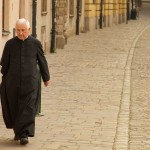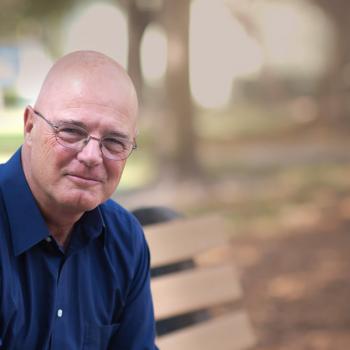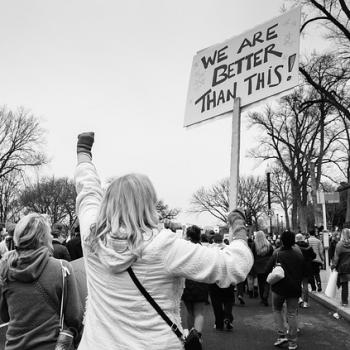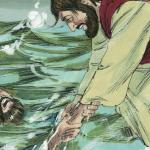I just took my first sabbatical. Turning 60 seemed like a good time to get off the road, quiet down, take stock, recharge. It was all I had hoped for. I rested. Walked. Rode my bike. Fished. Played my guitar. Finished a book. Stayed out of airports. Binge-watched a couple TV series with my wife. Worked with a coach and developed a set of priorities and plans for the decade ahead.
But unexpectedly, near the end of my sabbatical, I was overtaken by an unexpected grief. If I were grieving the end of this once-in-a-lifetime gift of rest, that would have been expected. But I knew there was more going on, something deeper that was crying for articulation.
It took a while for the source of my grief to surface. It had to do with the book I had just finished.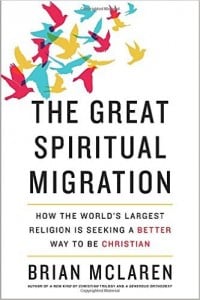
The Great Spiritual Migration is about three shifts or movements that many Christians are experiencing: a move away from defining our faith as a system of beliefs and toward a love-centered way of life; a move away from conceiving of God as a violent Supreme Being who favors “us” at the expense of “them” and toward a vision of God as the healing and reconciling Spirit embodied in Jesus; and a move from the church as organized religion to organizing religion—organizing spiritual activists who will work for the common good.
As I was wrestling these thoughts into their final form, I was watching Trumpism mobilize people in exactly the opposite direction, a reverse migration if you will, with Evangelical Christians serving as Trump’s most dependable base. And that, I think, explained the source of my sadness: I was losing the last shreds of my innocence about my religious heritage. I was feeling at a deeper level how much Evangelicalism had harmed me, and with me, many others.
Long-forgotten memories began coming back to me. Some were related to my family, like memories of disciplining my children with patriarchal fervor, following “Focus on the Family” guidelines that were the norm in my Evangelical tribe but now filled me with intense regret. Some were related to my career as a pastor, like preaching sermons that evaded inconvenient truths and repeated convenient falsehoods, or giving people pastoral counsel I then considered “biblical” but now considered downright hurtful. As these memories would arise, I would literally wince, sometimes groan, sometimes pray, “Lord, have mercy.”
Somehow, my grief was intensified by watching my adult kids raise their kids … without the slightest connection to the Conservative Evangelical Project. It wasn’t that I was sad about this, but the reverse: I was happy. Relieved. Grateful. My beloved grandkids, I realized, were better off than their parents or grandfather because they weren’t being indoctrinated in a belief system and political atmosphere that would denigrate others and make the world a worse place.
This persistent, profound grief was telling me that I needed to admit something to myself that I had never before admitted: the Evangelicalism that I had been a part of and that was a huge part of me had done me much harm, more than I had realized. My many years in the pastorate, my many books, my busy speaking schedule, I realized, have been an extended attempt to heal from the damage that was done to me by good people who were loyally trying to carry on a once-good tradition that had now gone undeniably wrong.
Around this time in the summer of 2016, we were all touched by photographs coming out of Syria, and a new realization hit me: I had written a book about a “great spiritual migration,” but perhaps what I hadn’t fully acknowledged was the degree to which we spiritual migrants are actually refugees, spiritual refugees. We are safe in our homes, but escaping the “failed state” of a war-torn religion whose leaders—through some combination of ego, incompetence, fear, and greed—have misled us. We are spiritually homeless, landless, displaced, feeling a combination of hope and desperation about our prospects for building a better future.
I am now on a book tour to talk to clergy and lay leaders around the country and beyond about The Great Spiritual Migration. I am rested, recharged, and eager to get back to work and back on the road. This unexpected grief will help me, I know, speak with more intensity and integrity about the great migration we find ourselves in, a journey that feels increasingly to be a matter of spiritual life and death.


